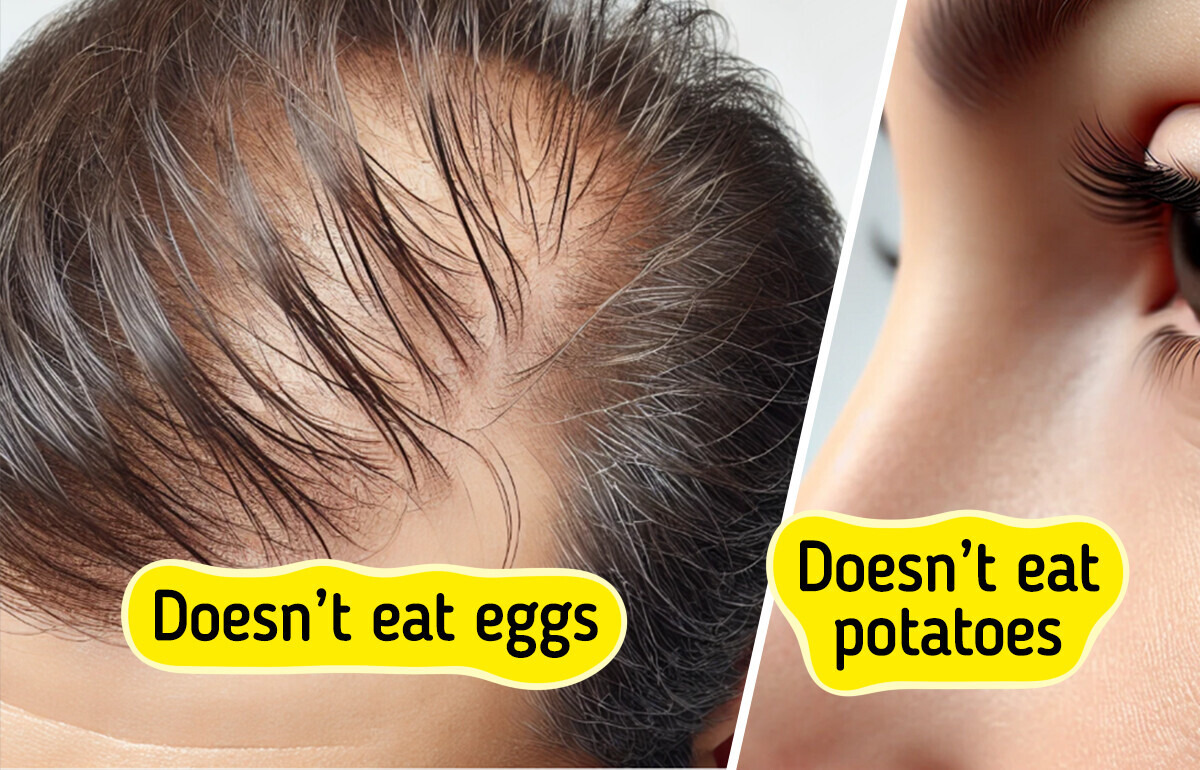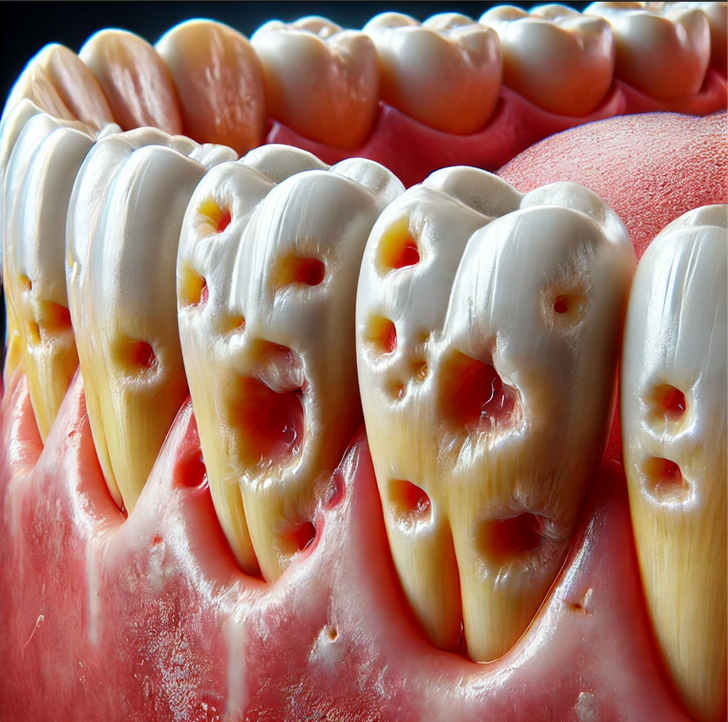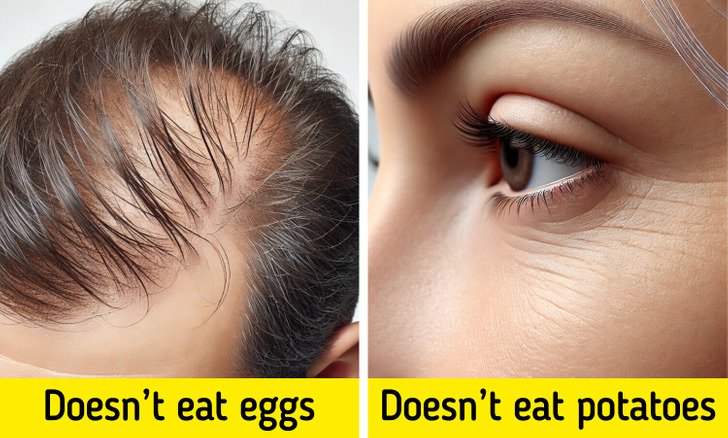10+ People Who Witnessed the Most Harrowing Turn of Events


In today’s world, diet trends come and go, promising quick weight loss, improved health, and increased energy. While a well-balanced diet is essential for overall well-being, sometimes even the healthiest-looking eating habits can have hidden downsides. Many people focus on what they eat to achieve their fitness or aesthetic goals, but they may not realize when their diet is actually doing more harm than good. In this article, we’ll highlight these key warning signals.
Disclaimer: Content is provided for informational purposes only and is not intended as a substitute of medical advice. Seek guidance of your doctor regarding your health and medical conditions.
If you’re experiencing brain drain, brain fog, or memory issues, while being on your diet, it could be due to nutritional imbalances—especially a lack of omega-3 fatty acids, which are essential for keeping your brain sharp. To get plenty of omega-3 in your diet, choose foods such as salmon, soybeans, walnuts, and seeds such as flax and chia.

A well-balanced diet is essential for overall health, including your teeth. If you’re noticing increased sensitivity or more cavities, your eating habits could be to blame. Vegans are at higher risk of dental erosion due to acidic and sugary foods like fruits. Plus, relying on starchy foods like pasta can promote cavities, since starch breaks down into sugar in the mouth.
It’s best to limit the consumption of these foods and drink plenty of water to maintain a healthy saliva flow and a healthy pH in the mouth. You can also wait 30 minutes to 1 hour after meal consumption to brush your teeth, to prevent enamel erosion. Brush your teeth with a soft-bristled toothbrush and fluoride toothpaste twice a day, and floss daily.

What you eat plays a major role in your overall health, including the condition of your skin and hair. A balanced diet provides essential nutrients that keep you looking and feeling your best. Deficiencies, on the other hand, can lead to noticeable changes in your appearance.
People following carnivore diets typically eat a lot of red meat, which is classified by the World Health Organization as “probably carcinogenic to humans”. Studies show a notable link between eating red meat, such as beef, pork, and lamb, and developing colorectal cancer; the evidence for processed meat is even stronger. A potential explanation is the high level of heme iron in red meat. Heme iron damages cells and DNA by creating free radicals, and over time, this can result in cancer-causing DNA mutations.
It also contributes to poor skin health and signs of aging. Vitamins D, C, E, and K help maintain youthful skin, while zinc—found in shellfish, legumes, dairy, nuts, seeds and potatoes—is crucial for skin health. Since your body can’t store zinc, you need to consume it daily.
If your hair is dry and brittle, you may not be getting enough lean protein, essential fatty acids, or vitamin C. Poor nutrition and crash diets can even cause hair loss. To keep your hair strong and healthy, include fatty fish like salmon, eggs, a variety of fruits and vegetables, and nutrient-dense nuts and seeds in your meals.
A poor diet doesn’t just affect digestion-it can impact energy levels, skin health, and overall well-being. Both diarrhea and constipation can appear if you aren’t getting enough fiber—one of the many signs of an unbalanced diet. Unfortunately, most Americans fall short of the recommended intake—25 grams per day for women and 38 grams per day for men.
If you’re experiencing digestive discomfort, consider increasing your fiber intake by incorporating more whole grains like brown rice and oats, along with nuts, seeds, and fresh or frozen produce. Prioritizing a mix of fiber, lean proteins, healthy fats, and proper hydration can help restore balance and keep your body functioning at its best.
Relying solely on skeletal calcium reserve can’t be sustained for lengthy or repeated periods, because of how long it takes to be replenished. This is why diet is so important for bone density — and why a poor diet can cause extreme damage, especially when certain food groups or minerals are consistently left out.
Diets high in added sugar can also have a detrimental effect on the skeleton. Excess sugar causes inflammation and other physiological changes, such as obesity. Low- and high-fat diets have also been associated with increased risk of osteoporosis (a condition that weakens bones) in women — though larger studies are needed to better understand the effects of removing whole food groups on bone health.
While it’s possible to limit some of the decline in bone density that naturally happens as we age, some of the choices we make — such as not consuming enough calcium — can accelerate the decline. Also, post-menopausal women are at greater risk of osteoporosis because they produce less estrogen, which helps keep the cells that degrade bone in check.
A well-balanced diet is essential for overall health, providing the body with the nutrients it needs to function properly. The foods you eat play a direct role in energy levels, immune function, and disease prevention. Making mindful choices about nutrition can lead to long-term benefits, improving both physical and mental well-being.
Poor nutritional habits can weaken your immune system, making you more susceptible to illness and infection. If you frequently feel unwell, increasing your intake of nutrient-rich foods may help. Proper nutrition can support immune function by providing essential vitamins and minerals.
Focus on consuming foods rich in vitamins A, C, and E, as well as zinc, selenium, iron, and folic acid. Start by incorporating more fresh fruits, vegetables, and whole grains into your diet—particularly citrus fruits, such as lemons and limes, leafy greens, popcorn without extra butter and salt, and brown rice.
While a diet may seem healthy on the surface, these sneaky signs could indicate that it’s doing more harm than good. Pay attention to how your body feels, and don’t be afraid to make adjustments or seek guidance from a nutrition expert. Your health should always come first, and a balanced approach to eating is key to feeling your best.











